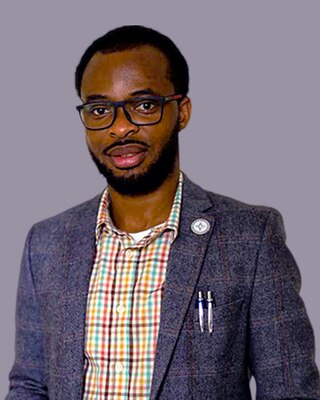Related Research Articles
Warwick Medical School is the medical school of the University of Warwick and is located in Coventry, United Kingdom. It was opened in 2000 in partnership with Leicester Medical School, and was granted independent degree-awarding status in 2007.
Aberdeen University School of Medicine, Medical Sciences & Nutrition contains the Medical School and Dental School at the University of Aberdeen in Scotland. It also provides training and carries out research in medical sciences, nutrition, public health, dentistry, health sciences, physician associate studies at BSc, MSc, and PhD levels. The current school was formed from the merger of the former School of Medicine & Dentistry, School of Medical Sciences, and the Rowett Institute of Nutrition.

The School of Clinical Medicine is the medical school of the University of Cambridge in England. The medical school is considered as being one of the most prestigious in the world, ranking as 1st in The Complete University Guide, followed by Oxford University Medical School, Harvard Medical School, and Stanford School of Medicine and 2nd in the world in the 2023 Times Higher Education Ranking. The Cambridge Graduate Course in Medicine (A101) is the most competitive course offered by the University and in the UK, and is among the most competitive medical programs for entry in the world. The school is located alongside Addenbrooke's Hospital and other institutions in multiple buildings across the Cambridge Biomedical Campus.
Peninsula College of Medicine and Dentistry (PCMD) was a medical and dental school in England, run in partnership with the University of Exeter, the University of Plymouth and the NHS in Devon and Cornwall. In January 2013 the school began disaggregation to form Plymouth University Peninsula Schools of Medicine and Dentistry and the University of Exeter Medical School.
The Centre for Statistics in Medicine (CSM) at the University of Oxford, United Kingdom was founded by Professor Douglas G. Altman until 2018. He was succeeded by Professor Sallie Lamb until 2019, then by Professor Gary Collins. In 1995 it was based at the Institute of Health Sciences in Headington, Oxford, it relocated to the annexe of Wolfson College, Oxford in 2005, and in 2013 moved to the Botnar Research Centre in Headington.

Swansea University Medical School is a medical school on Swansea University's Singleton campus. It is linked to additional teaching centres located throughout South and West Wales, including Cefn Coed Hospital, Singleton Hospital and Morriston Hospital in Swansea, Prince Philip Hospital in Llanelli, Withybush General Hospital in Haverfordwest and Bronglais Hospital in Aberystwyth. The Medical School also has a network of primary care teaching centers.
A Bachelor of Medical Sciences (BMedSci, BMedSc, BSc(Med), BMSc) is an undergraduate academic degree involving study of a variety of disciplines related to human health leading to an in depth understanding of human biology and associated research skills such as study design, statistics and laboratory techniques. Such disciplines include biochemistry, cell biology, physiology, pharmacology or psychosocial aspects of health. It is an equivalent level qualification to the more commonly awarded Bachelor of Science (BSc). Graduates may enter a diverse range of roles including post-graduate study, higher education, the biotechnology industry, the pharmaceutical industry, consultancy roles, scientific communication, education or unrelated disciplines which make use of the broad range of transferable skills gained through this degree.

The University of Aberdeen School of Law is the law school of University of Aberdeen, located in Aberdeen, Scotland. Established in 1495, it is consistently ranked among the top 10 law schools in the United Kingdom.
Sir Edward Byrne is a neuroscientist who served as Principal of King's College London from August 2014 until January 2021. He was previously Vice-Chancellor of Monash University.
Dame Anna Felicja Dominiczak DBE FRCP FRSE FAHA FMedSci is a Polish-born British medical researcher, Regius Professor of Medicine - the first woman to hold this position, and the Chief Scientist (Health) for the Scottish Government. From 2010 to 2020, Dominiczak was the Vice-Principal and Head of the College of Medical, Veterinary and Life Sciences at the University of Glasgow, Scotland. She is an Honorary Consultant Physician and Endocrinologist for the NHS Greater Glasgow and Clyde Health Board, and Health Innovation Champion for the Medical Research Council. From 2013 to 2015, Dominiczak was president of the European Society of Hypertension. She is the current Editor-in-Chief of Precision Medicine, a new journal launched in July 2023.

Ian Ford [ FRSE FRCP(Glas) FSCT ] is a professor of biostatistics and a director of the Robertson Centre for Biostatistics, and a former Dean of Faculty of Information and Mathematical Sciences, at the University of Glasgow.
Annabelle "Anna" Frances Glasier OBE, FFSRH, FRCOG FRSE is an English physician in the field of reproductive medicine. Glasier is a world expert on emergency contraception, and her work has been instrumental in making it available in the UK and other countries without medical prescription
Deborah Ashby is a British statistician and academic who specialises in medical statistics and Bayesian statistics. She is the Director of the School of Public Health and Chair in Medical Statistics and Clinical Trials at Imperial College London. She was previously a lecturer then a reader at the University of Liverpool and a professor at Queen Mary University of London.
David John Hunter is an Australian epidemiologist and the Richard Doll Professor of Epidemiology and Medicine at Oxford Population Health. He was previously a professor in the Department of Epidemiology and the Department of Nutritionof Harvard University. He was associate epidemiologist at the Channing Laboratory, Brigham and Women's Hospital, where he was involved with the programs in breast cancer, cancer epidemiology, and cancer genetics research teams.
Department of Community Medicine, St Thomas's Hospital Medical School, London was the foremost centre for public health research in the UK in the 1970s and 1980s. Some of its records are held in The National Archives.
Kate Tilling is a British statistician who specialises in developing and applying statistical methods to overcome problems encountered in epidemiological research. Tilling has been a professor in medical statistics. in population health sciences within Bristol Medical School, University of Bristol, since 2011. She joined the University of Bristol in 2002 as a Senior Lecturer, following nine years as a lecturer at King's College London.
Colin Baigent is a British academic physician and cardiovascular epidemiologist. He is a professor of epidemiology, Director of the Medical Research Council Population Health Research Unit at the University of Oxford, and deputy director of the Clinical Trial Service Unit and Epidemiological Studies Unit (CTSU), part of Oxford Population Health. His work is focused in the design and coordination of large-scale randomised trials and the use of meta-analysis to assess the efficacy and safety of drugs for the prevention of cardiovascular disease (CVD) or premature death.
Mirela Delibegovic, is a British pharmacologist/biochemist who is Dean for Industrial Engagement in Research & Knowledge Transfer and Director of Aberdeen Cardiovascular and Diabetes Centre. She is also Regius Professor of Physiology at the University of Aberdeen. During the COVID-19 pandemic, Delibegovic used artificial intelligence to develop technologies that would allow mass-screening for coronavirus disease 2019.

Peter Ikhianosimhe Imoesi is a Nigerian molecular neuroscientist and research fellow at the Institute of Medical Sciences at the University of Aberdeen. He holds a PhD degree in medical sciences from the School of Medicine, Medical Sciences and Nutrition at the University of Aberdeen. He is most notable for his research in the area that the hypothalamus play a significant role in the vitamin A homeostasis.
Paula Ruth Williamson is a British medical statistician who specialises in medical statistics and the use of methodology within the field, particularly clinical trials methodology. A graduate from the University of Sheffield, she originally worked as a senior statistician in healthcare before moving to the University of Liverpool, where she became Professor of Medical Statistics and served as head of the Department of Biostatistics from 2002 until 2018. She was elected Fellow of the Academy of Medical Sciences in 2018.
References
- ↑ Cuthbertson, B.; Campbell, Marion Kay; Stott, S.; Vale, Luke David; Norrie, John David Taylor; Kinsella, J.; Cook, Jonathan Alistair; Brittenden, Julie; Grant, Adrian Maxwell (2010). "Pragmatic multi-centre randomised trial of (1) routine postoperative ICU care and/or (2) pre-operative fluid loading in high-risk surgical patients undergoing major elective and urgent surgery". University of Aberdeen. Retrieved 2024-05-24.
- 1 2 3 4 5 "Professor Marion Campbell | Health Services Research Unit | The University of Aberdeen". www.abdn.ac.uk. Retrieved 2024-04-13.
- 1 2 3 "Leading professor elected to prestigious medical sciences fellowship | News | The University of Aberdeen". www.abdn.ac.uk. Retrieved 2024-04-13.